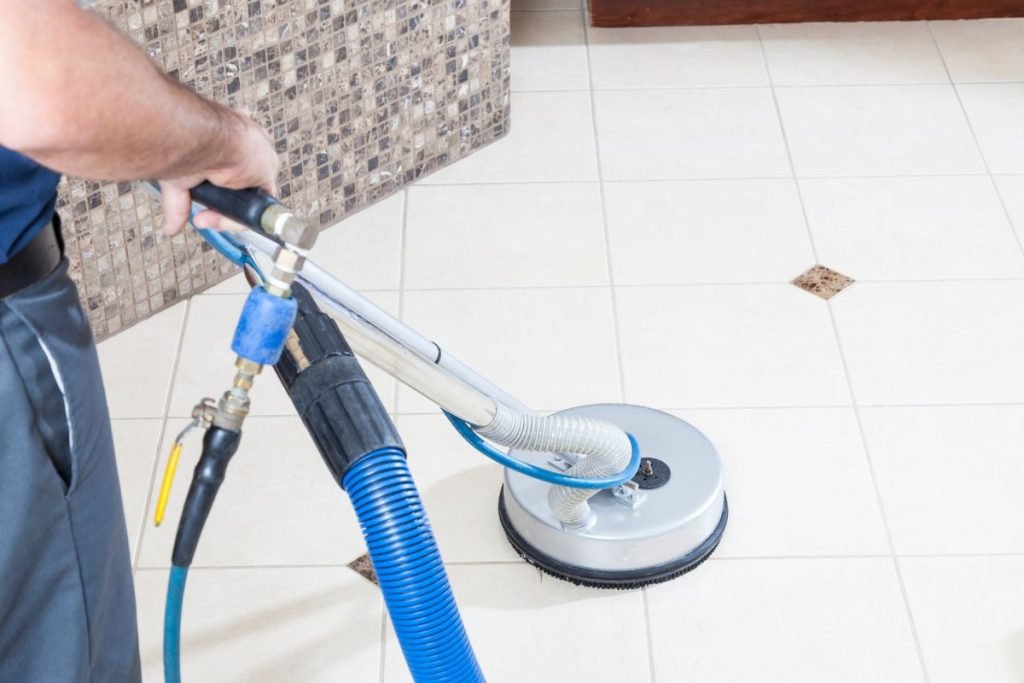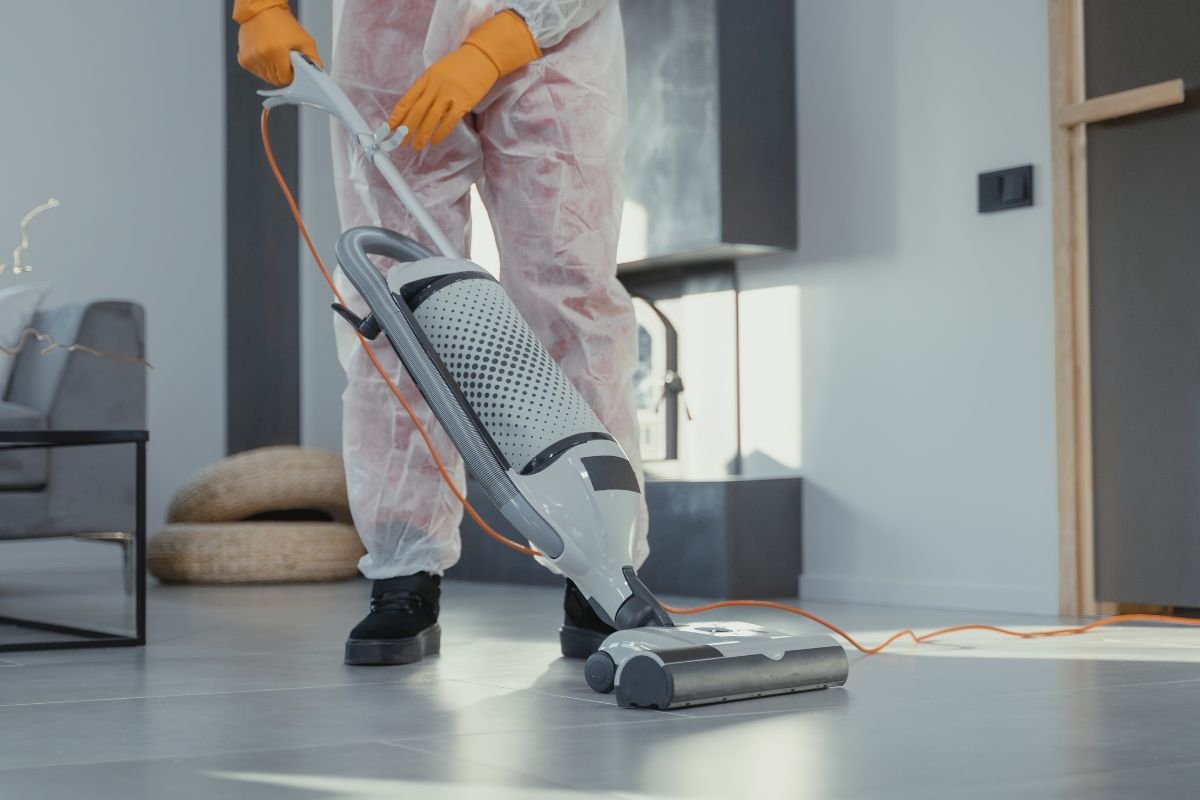
Dirty grout can make even the most beautiful floors look dingy and uninviting. The best grout cleaner for your floors depends on the type of grout you have, the type of stains you’re battling, and your personal preferences (DIY vs. store-bought, for example).
Why Clean Grout Matters (And How to Do It Right)
Grout, the porous material between your tiles, acts like a magnet for dirt, spills, and grime. Over time, this buildup can lead to unsightly stains, discoloration, and even the growth of mold and mildew. Beyond aesthetics, dirty grout can harbour bacteria and allergens, impacting the overall hygiene of your home. Regular grout cleaning not only enhances the appearance of your floors but also contributes to a healthier living environment. While the task can seem tedious, the results are well worth the effort.
Decoding Grout: Types and Their Cleaning Needs

Not all grout is created equal. Understanding the type of grout you have is crucial for choosing the right cleaning method and preventing damage. The two main types are:
- Cementitious Grout: This is the most common type of grout, made from a mixture of cement, sand, and water. It’s porous and susceptible to staining, requiring regular cleaning and sealing.
- Epoxy Grout: Epoxy grout is more durable and stain-resistant than cementitious grout. It’s non-porous, making it easier to clean and less prone to mold and mildew growth.
- Sanded vs. Unsanded Grout: Cementitious grout comes in sanded and unsanded varieties. Sanded grout is used for wider grout lines (1/8 inch or greater), while unsanded grout is used for narrower grout lines to prevent scratching delicate tiles.
This guide will walk you through everything you need to know to choose the right cleaner and get your grout sparkling again.
Top Grout Cleaner Showdown: Finding the Perfect Match for Your Floors
Choosing the right grout cleaner can feel overwhelming, but understanding your options will make the process easier.
- Considerations Before You Buy (Floor Type, Stain Type, Safety): Before you reach for any cleaning product, consider your floor type (tile, stone, etc.) and the nature of the stains you’re dealing with (mold, mildew, dirt, grease). Also, prioritize safety by choosing cleaners that are safe for your family and pets.
- Types of Grout Cleaners (Acidic, Alkaline, Neutral, DIY):
- Acidic Cleaners: Effective for removing mineral deposits and rust stains, but can damage certain types of tile and grout.
- Alkaline Cleaners: Ideal for cutting through grease and grime, but can be harsh on sensitive surfaces.
- Neutral Cleaners: A gentler option for everyday cleaning and maintenance.
- DIY Cleaners: Baking soda, vinegar, and hydrogen peroxide can be effective natural alternatives for light to moderate stains.
Need help choosing the right grout cleaner? Call us we’re here to assist you!
Our Top Picks: The Best Grout Cleaners on the Market
Here are some of the best grout cleaners available, based on performance, user reviews, and expert recommendations:
- CLR Mold & Mildew Cleaner – Excellent for removing mold and mildew stains from grout in bathrooms.
- Grout-Eez Super Concentrate Grout Cleaner – A powerful alkaline cleaner for tackling tough grease and grime.
- The Bucko Soap Scum & Grime Cleaner- Effective for removing stains and safe for all types of tiles.
- OxiClean Versatile Stain Remover Powder – Great for all around cleaning and stain removing.
- Zep Grout Cleaner and Brightener – Acidic cleaner to make your grout look new again.
Have questions or need more cleaning tips? Feel free to contact us – we’re happy to help!
The Ultimate Guide to Cleaning Grout Like a Pro

Follow these steps for a deep and effective grout cleaning:
- Preparation is Key: Clear the area of furniture and debris. Sweep or vacuum the floor thoroughly.
- Applying the Cleaner: Apply the chosen grout cleaner liberally to the grout lines, following the manufacturer’s instructions.
- Scrubbing Techniques: Use a grout brush or a stiff-bristled brush to scrub the grout lines vigorously. For stubborn stains, let the cleaner sit for a few minutes before scrubbing.
- Rinsing and Drying: Rinse the floor thoroughly with clean water to remove all traces of the cleaner. Dry the floor with a clean towel or microfiber mop.
- Sealing for Protection: Once the grout is clean and dry, apply a grout sealer to protect it from future stains and moisture damage.
Vinyl plank flooring is a durable and stylish option for any home. Learn more in our guide to vinyl plank flooring to see if it’s the right choice for your home!
Homemade Heroes: DIY Grout Cleaners That Really Work
For a more natural approach, try these DIY grout cleaning solutions:
- Baking Soda Paste: Mix baking soda with water to form a thick paste. Apply the paste to the grout lines, let it sit for a few minutes, and then scrub with a brush. Rinse with water.
- Vinegar and Baking Soda: Sprinkle baking soda on the grout lines, then spray with white vinegar. The mixture will fizz. Let it sit for a few minutes, then scrub and rinse. Avoid using this method on natural stone floors.
- Hydrogen Peroxide: Apply hydrogen peroxide directly to the grout lines, let it sit for 10-15 minutes, then scrub and rinse.
Keeping Grout Clean: Tips for Long-Lasting Results
Preventative measures are key to maintaining clean grout and minimizing the need for deep cleaning.
- Regular Cleaning Routine: Sweep or vacuum your floors regularly to remove dirt and debris before they get embedded in the grout.
- Proper Ventilation: Ensure proper ventilation in bathrooms and kitchens to prevent mold and mildew growth.
- Sealing Grout: Seal your grout regularly (every 6-12 months) to protect it from stains and moisture damage.
- Choosing the Right Cleaning Products: Use pH-neutral clean.
Have questions about grout cleaning? Call us we’re ready to help!

